
Major Roles And Responsibilities of a Web Developer in 2025
Mar 13, 2025 6 Min Read 4687 Views
(Last Updated)
Web development is one of the fastest-growing domains in the job market. According to the Bureau of Labor Statistics, employment growth for web developers is projected at 30.3% between 2021 and 2031, which will open almost 28,900 jobs. So, if you’re an aspiring web developer looking to secure a job in the near future, it’s one of the most favorable times to do so.
But before you embark on the journey to secure a successful job, do you know what the roles and responsibilities of a web developer are? What does the day-to-day work of a web developer look like, and what skills and qualifications do you need to become a successful web developer?
If not, then we have come up with the ultimate guide here that will answer all these questions regarding the work of a web developer, the various roles they take on, and their key responsibilities. So, let’s dive in.
Table of contents
- What does a Web developer Do?
- Roles and Responsibilities of Web Developer
- Core Web Developer Roles
- Front end developer
- Back end developer
- Full stack developer
- Webmaster
- Key Web Developer Responsibilities
- Coding and Programming
- Design Collaboration
- Testing and Debugging
- Performance Optimization
- Qualifications and Skills for Web Developers
- Technical Skills for Web Developers
- Soft Skills for Web Developers
- Conclusion
- FAQs
- What are the primary responsibilities of a web developer?
- What skills are essential for a web developer?
- How important are soft skills for a web developer?
- How does a web developer differ from a web designer?
- What is the future scope of web development?
- Are web development and software development the same?
What does a Web developer Do?
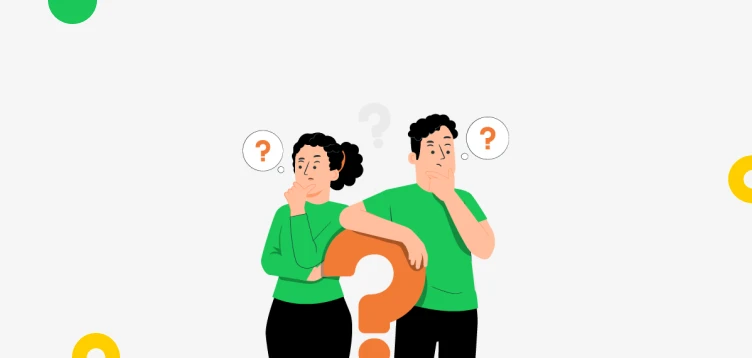
A web developer creates websites using programming languages like HTML, CSS, JavaScript, etc. They convert a web design into a professional website, product, or mobile application.
Web developers ensure the website is visually appealing, easy to navigate, and performs reliably and efficiently. They may also be responsible for the website’s performance and capacity and ensure that it functions properly in a given situation.
Overall, web development is the art and science of building the framework of websites and applications. It’s a field that blends creativity with technical prowess, encompassing everything from the aesthetic layout to the complex coding that makes a website function. The evolution of web development roles continues to adapt to new technologies and methodologies, making it a dynamic career path.
Now that we have understood the primary work, let’s get an overview of the various roles and responsibilities of a web developer.
Before diving into the next section, ensure you’re solid on full-stack development essentials like front-end frameworks, back-end technologies, and database management. If you are looking for a detailed Full Stack Development career program, you can join GUVI’s Full Stack Development Career Program with Placement Assistance. You will be able to master the MERN stack (MongoDB, Express.js, React, Node.js) and build real-life projects.
Additionally, if you want to explore JavaScript through a self-paced course, try GUVI’s JavaScript self-paced certification course.
Roles and Responsibilities of Web Developer
Since we have understood the basic work of a web developer, we can say that it’s a multifaceted job that comes with its own set of challenges. The roles and responsibilities of a web developer include many in-depth and complex tasks that require high-tech skills and qualifications.
Also Read: Target these companies for an illustrious career as a web developer
To explain that, there’s nothing better than a web developer job description (JD). You can go through multiple JDs posted under the job requirements posted by various companies on job boards, LinkedIn, etc.
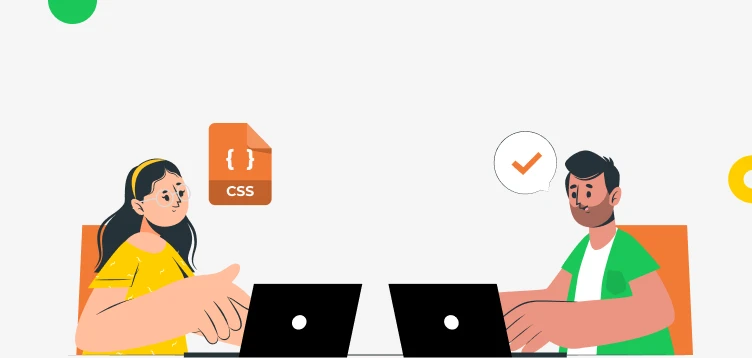
Here’s one such job description for web developers that brings you a comprehensive list of the ideal roles and responsibilities of a web developer in the modern industry:
- Work on various web development projects in collaboration with different teams
- Create a user-friendly website layout for web pages using HTML and CSS
- Integrate various back-end services and databases
- Work in collaboration with the website designers to deliver on their plans efficiently
- Regularly check and revamp the website wherever required
- Produce well-written code using the best software development practices
- Create and maintain proper documentation of all the software changes
- Design and develop creative and original websites
- Ensure the smooth functioning of the website
- Actively troubleshoot emergency issues whenever needed
- Work on regular data backup
- Uphold company policies and quality standards
- Stay up to date with growing best practices, technological advancements, and industrial advancements
- Keep learning on the job to achieve growth
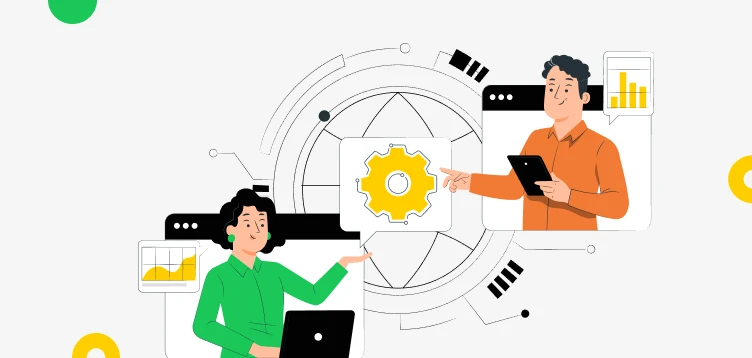
Key qualifications of a web developer:
- Must possess a Bachelor’s degree in computer science or a field closely related
- Proficient in developing web applications, implementing SEO strategies, and using network diagnostic and analytics tools
- Proven experience in web programming or a similar technical field
- Expertise in web technologies including HTML, CSS, JavaScript, PHP, and ASP.NET
- Strong analytical and problem-solving skills
- Excellent multitasking capabilities and organizational skills
- Must be comfortable working under pressure in a dynamic and fast-paced setting
- Should be committed to continuous learning and staying updated with the latest trends in web technology and software development
Core Web Developer Roles
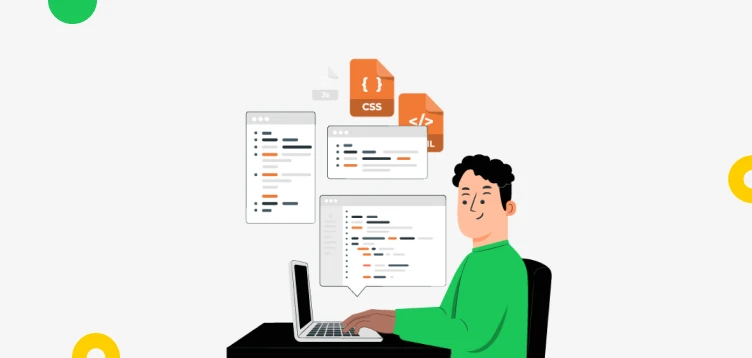
A web developer has to wear many hats. Now that we have seen a typical job description for a web developer that clearly mentions the common roles and responsibilities of a web developer, here are the major roles that a web developer needs to perform in various capacities:
1. Front end developer
Front-end development is where the visual elements of a website come to life, focusing on user experience and interactivity.
A front-end developer primarily takes care of the following tasks:
- Crafting intuitive and engaging User Interfaces
- Ensuring websites are responsive on all devices
- Implementing principles of User Experience to guide design choices
2. Back end developer
Back-end development is the backbone, dealing with the server and database that keep the website running.
A back-end developer primarily takes care of the following tasks:
- Managing servers, applications, and databases
- Architecting data structures and storage solutions
- Safeguarding data flow and security protocols
3. Full stack developer
Full-stack developers are all-rounders, equipped to handle both front and back-end tasks.
A full-stack developer primarily takes care of the following tasks:
- Managing servers, applications, and databases
- Architecting data structures and storage solutions
- Safeguarding data flow and security protocols
Also Read: Key differences between a Full Stack Developer and a Software Developer
4. Webmaster
Webmasters are the caretakers of websites or web applications who ensure the website is available and performing as intended.
A webmaster primarily takes care of the following tasks:
- Maintaining the overall health and functionality of websites
- Managing web server and hardware
- Overseeing website content and dealing with user access rights
Key Web Developer Responsibilities
After understanding the various roles a web developer has to perform, let’s have a detailed look at the major responsibilities they need to take care of as part of the day-to-day work of a web developer.
1. Coding and Programming
Developers need to write clean, scalable code that follows industry standards and best practices. They must be adept at using frameworks and libraries to speed up development and create robust applications.
2. Design Collaboration
A key part of web development is translating design into functional websites, requiring close collaboration with UI/UX designers. Developers must ensure that the final product reflects the intended design while maintaining functionality and performance.
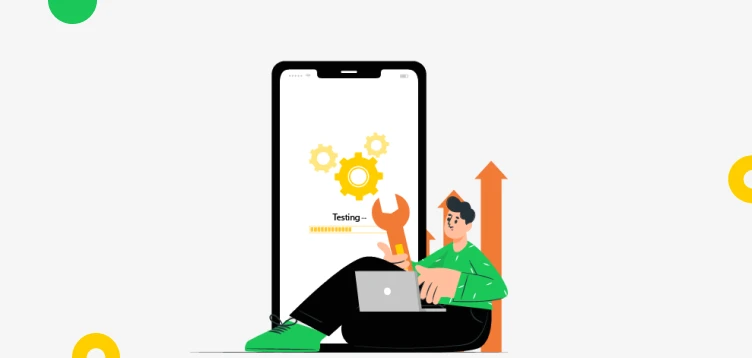
3. Testing and Debugging
Rigorous testing is essential to ensure compatibility across browsers and devices. Regular maintenance is crucial for addressing bugs and security issues and updating features to enhance performance and the user experience.
4. Performance Optimization
Developers must continuously optimize the performance of web applications to handle increased traffic and improve the user experience. They must also implement SEO best practices to ensure that websites rank well and are easily discoverable by users.
Also read: The Best Plan to Become a Web Developer in 2025
Qualifications and Skills for Web Developers
Before you start a career and undertake all these roles and responsibilities as a web developer, you need to understand what it takes to be a web developer. Although not a lot of companies today ask for a specific degree, it’s always helpful to possess a computer science degree to enhance your chances of selection.
Yet, your skills are paramount in this field. You need to be equally proficient in both the hard technical skills and the soft skills to be a good, well-rounded web developer.
Let’s discuss these skills or qualifications in a little more detail:
Technical Skills for Web Developers
As a web developer, we discussed above the variety of roles you would need to take up. This also translates into the challenge of keeping up with a lot of technical skills, so that your work as a developer surpasses expectations.
Such skills include various programming languages, frameworks, methodologies, tools, etc., which every web developer is expected to know. The following are the necessary technical skills for a web developer:
- HTML/CSS: Understanding the basics of HTML and CSS is crucial, as they are the building blocks of web development.
- JavaScript: Proficiency in JavaScript is vital for adding functionality to websites.
- Responsive Design: Skills in creating designs that work on various devices and screen sizes.
- Front-End Frameworks: Familiarity with frameworks like React, Angular, or Vue.js.
- Back-End Development: Knowledge of server-side programming languages like Node.js, Python, Ruby, or PHP.
- Database Management: Proficiency in managing databases using SQL, MongoDB, or similar technologies.
- Version Control/Git: Understanding of version control, particularly Git, to track and manage code changes.
- API Design & Development: Ability to create and use APIs (REST & SOAP).
- Web Security Knowledge: Understanding of security principles, including SSL, data protection, and vulnerability management.
- Testing/Debugging: Skills in testing code, frameworks, and tools like Mocha, Jest, or Selenium.
- Basic Design Skills: Understanding basic design principles, including UI/UX design.
- Web Hosting Platforms: Familiarity with web hosting and server management using platforms like AWS, Heroku, or Azure.
- SEO Fundamentals: Knowledge of Search Engine Optimization techniques for better website ranking.
- CMS Platforms: Experience with Content Management Systems like WordPress, Drupal, or Joomla.
- Cross-Browser Development: Ability to ensure consistent performance across different web browsers.
- Agile and Scrum Methodologies: Understanding of Agile Development methodologies and experience in working in a Scrum environment.
- Mobile Development: Skills in mobile app development, particularly for web-based applications.
- E-commerce Integration: Experience with e-commerce platforms and payment gateway integration.
- Performance Optimization: Techniques for optimizing website performance, including load speed optimization.
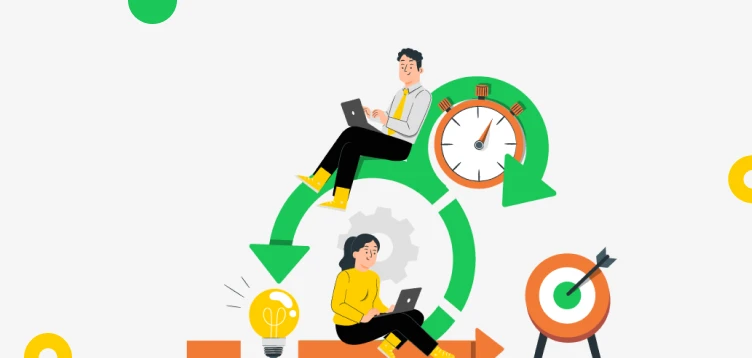
Soft Skills for Web Developers
Soft skills help a web developer perform their tasks better.
Here are some of the most important soft skills for web developers that you must develop before you start your career in web development.
- Problem-Solving: The ability to think analytically and solve complex technical issues is essential.
- Communication: Clear and effective communication, both written and verbal, is crucial for collaborating with team members and clients.
- Teamwork: Being able to work well in a team environment, understanding team dynamics, and contributing effectively.
- Adaptability: The tech field is constantly evolving, so being adaptable and open to learning new technologies and methodologies is vital.
- Time Management: Managing time efficiently to meet deadlines and handle multiple projects or tasks.
- Attention to Detail: Precision and attention to detail in coding, testing, and debugging to ensure high-quality output.
- Creativity: Bringing creative solutions to web design and development challenges.
- Patience: Maintaining patience during complex development processes and problem-solving.
- Critical Thinking: The ability to evaluate options critically and make informed decisions.
- Curiosity: A strong desire to learn and understand new technologies and development practices.
- Resilience: Bouncing back from setbacks and maintaining a positive attitude in the face of technical challenges.
- Project Management: Basic project management skills to oversee projects from conception to completion.
- Customer-Centric Mindset: Focusing on creating a user-friendly and accessible web experience for all users.
- Openness to Feedback: Being receptive to feedback and using it constructively to improve work quality.
Kickstart your Full Stack Development journey by enrolling in GUVI’s certified Full Stack Development Career Program with Placement Assistance where you will master the MERN stack (MongoDB, Express.js, React, Node.js) and build interesting real-life projects. This program is crafted by our team of experts to help you upskill and assist you in placements.
Alternatively, if you want to explore JavaScript through a self-paced course, try GUVI’s JavaScript self-paced course.
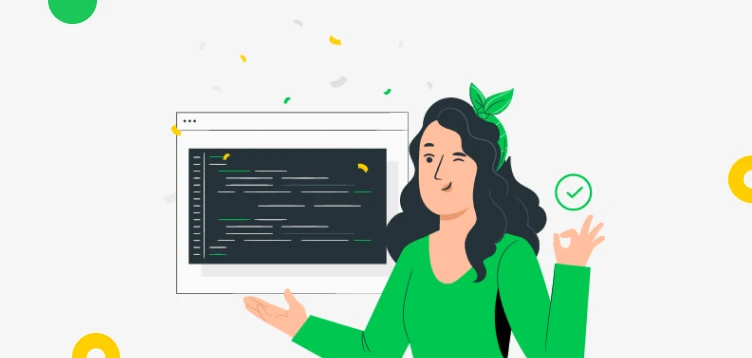
Conclusion
Now that you have a complete understanding of the roles and responsibilities of web developers, it’s time to start upskilling in both the technical and the soft skills to be eligible to crack a good job.
Try to gain job experience and various other skills by joining various web development internships, learning from online courses to gain professional certifications, or building personal projects to hone your skills.
Launch your web development career within 3 months under expert guidance and Skill India certification.
FAQs
-
A web developer is responsible for designing, coding, and modifying websites, from layout to function, according to a client’s specifications. They aim to create visually appealing sites with a user-friendly design and clear navigation.
-
Essential skills for a web developer include proficiency in web programming languages such as HTML, CSS, JavaScript, and backend languages like PHP or Python. Familiarity with database management, understanding of SEO principles, and knowledge of responsive design are also important.
-
Soft skills such as communication, teamwork, problem-solving, and time management are crucial for web developers to effectively collaborate with clients and team members and to deliver successful projects.
-
A web developer focuses on the technical aspects of building websites, such as coding and programming. A web designer concentrates on the visual aspects, including layout, color scheme, and user experience.
-
The future of web development is promising, with ongoing advancements in technology like AI, machine learning, and the increasing importance of mobile-friendly and fast-loading websites.
-
No, web development and software development are two different domains. Web development specifically refers to building, creating, and maintaining websites, while software development can involve creating a wider range of applications, not just for the web.

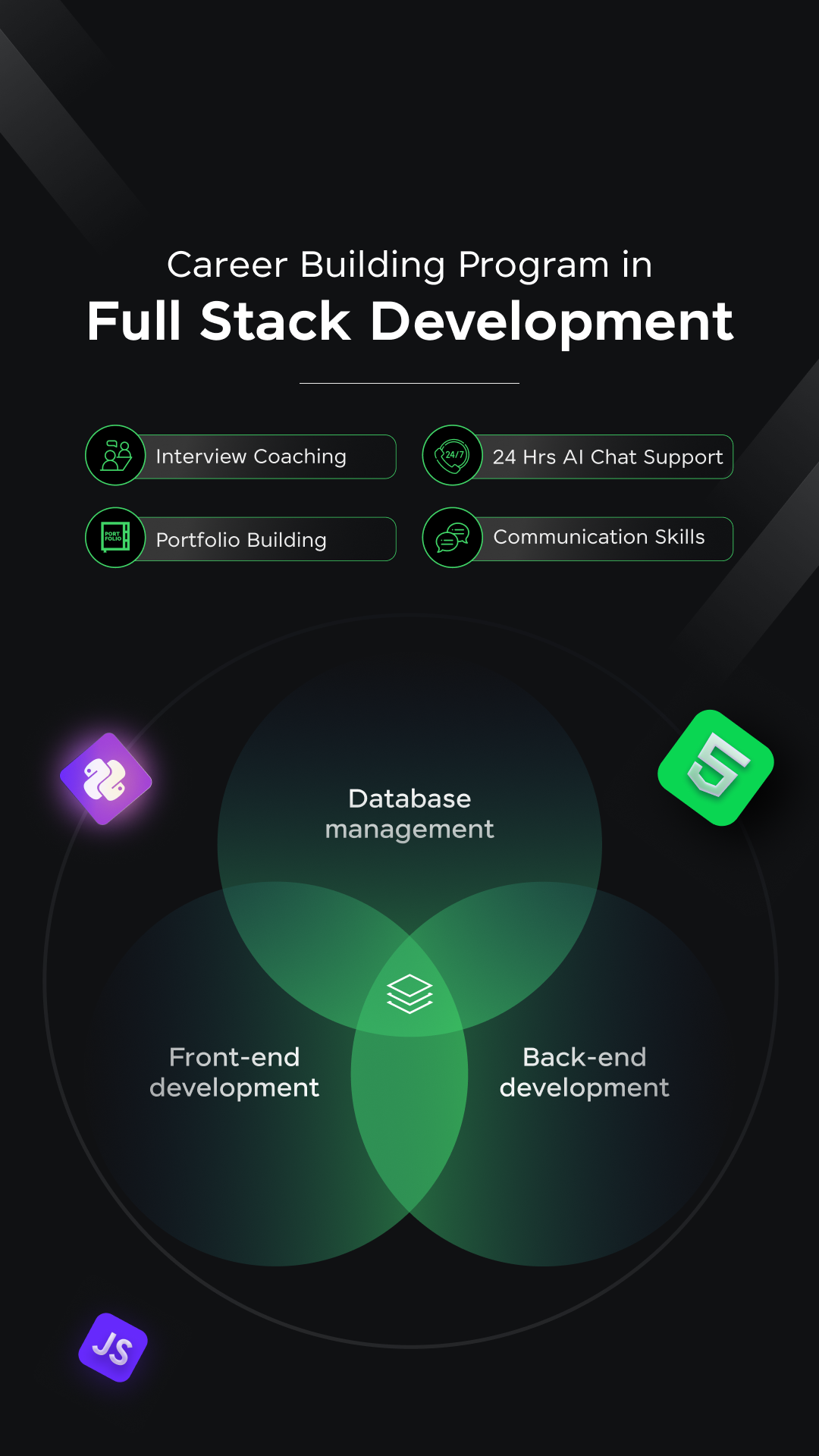





















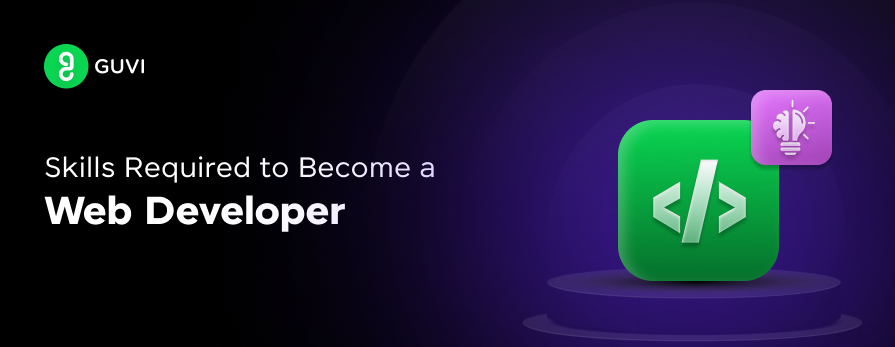
![Top 35 HTML and CSS Interview Questions with Answers [2025] 11 html and css interview questions with answers](https://www.guvi.in/blog/wp-content/uploads/2022/06/2.-HTML-Css.png)
![Top 20+ React Interview Questions and Answers [2025] 12 Top React Interview Questions](https://www.guvi.in/blog/wp-content/uploads/2022/01/Interview-Questions-1.png)
![What is ReactJS? A Beginner's Guide [2025] 13 what is reactjs](https://www.guvi.in/blog/wp-content/uploads/2025/04/what-is-reactjs.webp)


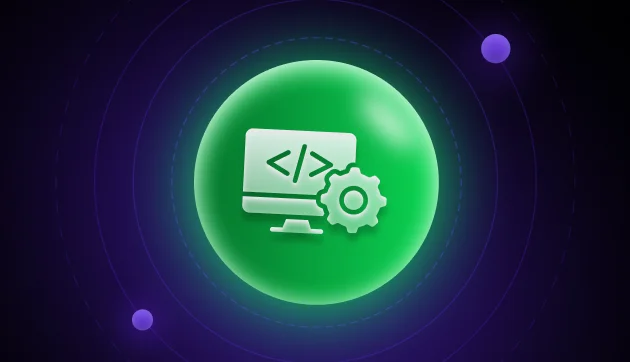


Did you enjoy this article?